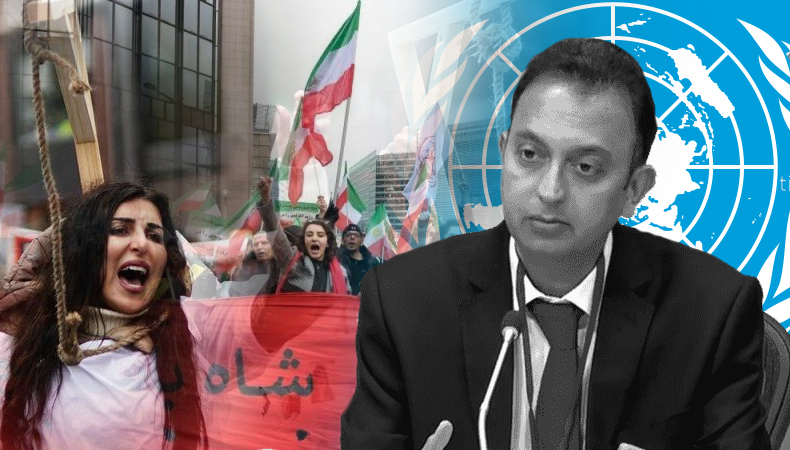Iran violations may amount to crimes against humanity: UN expert

On Monday, a UN-appointed expert testified before the Human Rights Council, detailing recent breaches by the Iranian regime that may constitute crimes against humanity, including murder, imprisonment, forced disappearances, torture, rape, and sexual abuse.
Iran has seen widespread protests after Mahsa Amini, a young Iranian Kurdish woman, passed away while being kept in custody last September.
Amini died “as a result of beatings by the state morality police,” according to information presented to the Geneva-based council by Javaid Rehman, Special Rapporteur on Iran. She didn’t die from blows to the head and limbs, according to Iran’s state coroner, but rather from pre-existing medical issues.
Independent expert Rehman continued, “pointing to the likely commission of international crimes, particularly the crimes against humanity because of the scope and severity of the atrocities carried out by the authorities in the course of the repression that followed her death.”
Read | Saudi Arabia’s Supreme Court calls on Muslims to look for Ramadan crescent in the evening
The organisation was informed by Iran’s ambassador, Ali Bahreini, that the accusations were untrue and that Iran was being singled out and attacked by the council. He stated, “They try to present their fantasies as the reality of the situation in Iran.
Rahman added that 527 people died in the protests, including 71 kids and those who were killed after being beaten by security personnel. He continued, quoting Iranian doctors, that shotgun fire was directed towards women and girls’ faces, breasts, and genitalia.
143 individuals have been hanged since January after “grossly unjust trials,” he claimed, expressing worry at the murder of at least four protesters.
The 47-member council, the only group of states in the world tasked with defending human rights, decided in November to create an impartial probe into Iran’s crackdown on rallies. International tribunals have occasionally accepted evidence gathered by other investigations ordered by the U.N. rights council.




